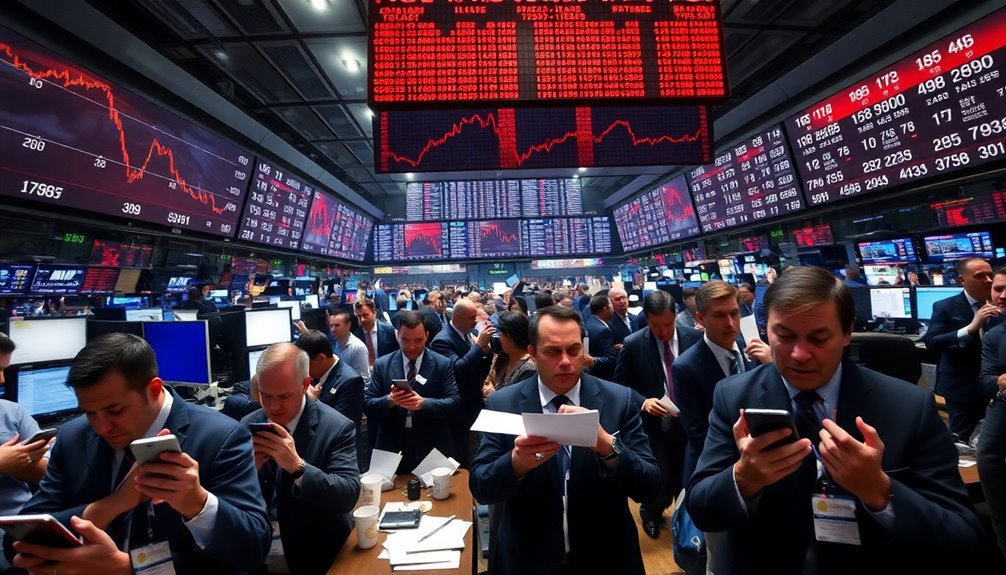You've seen the headlines: DeepSeek's launch sent the stock market into a tailspin. Investors are on edge, grappling with fears that AI could disrupt entire industries. With traditional sectors facing upheaval and no clear regulations in sight, it's no wonder panic set in. As stock prices plummeted, the implications for economic stability and the workforce loomed large. What exactly does this mean for the future of investing?

As investors braced for uncertainty, the launch of DeepSeek sent shockwaves through the market, triggering a swift and significant stock market drop. This new AI tool, touted as potentially disruptive, raised immediate alarm bells among traders. You might've felt the tension in the air as markets responded almost instinctively to the news, leading to a sharp decline in stock prices. The U.S. stock markets, in particular, took a substantial hit, reflecting the deep-seated fears surrounding DeepSeek's capabilities.
You probably noticed how quickly investor concerns escalated. The buzz was all about the potential disruption DeepSeek could bring to various sectors. With traditional industries facing the threat of being upended, anxiety rippled through the financial community. The economic uncertainty surrounding DeepSeek's impact only deepened the market's instability, leaving many to ponder the future of their investments.
As chatter about AI disruption fears grew louder, you might've found yourself questioning the stability of your portfolio. The lack of clear regulations governing AI tools like DeepSeek only fueled those worries. With no comprehensive framework in place, investors felt as if they were navigating uncharted waters, and that uncertainty didn't sit well with anyone.
Moreover, the technological uncertainty surrounding DeepSeek's full capabilities added another layer of complexity, fueling market anxiety even further. The potential global economic impact of AI tools like DeepSeek became a hot topic in discussions. You could sense that investors were grappling with the idea that entire job sectors might be at risk. As outlined in "The AI Bifurcation," the divergence between human and artificial intelligence could significantly reshape workforce dynamics and economic structures.
As some analysts pointed out, the market reaction seemed to border on overreaction, yet the fears were palpable. Your instinct might've led you to consider shifting investments away from sectors deemed vulnerable to AI disruption, as the volatility grew more pronounced.
This wave of panic prompted financial institutions and regulatory bodies to react. You could see efforts to stabilize the market and reassure investors were underway, but it was clear that concerns about economic growth remained heightened. As the dust settled, the need for regulatory frameworks became evident.
You realized that ethical considerations and global cooperation were necessary to manage the impact of AI technologies moving forward. In the end, you found yourself adapting, realizing that including AI-related risks and opportunities in your investment strategy was no longer optional but essential. The launch of DeepSeek not only rocked the markets but also reshaped your approach to investing in an increasingly AI-driven world.









